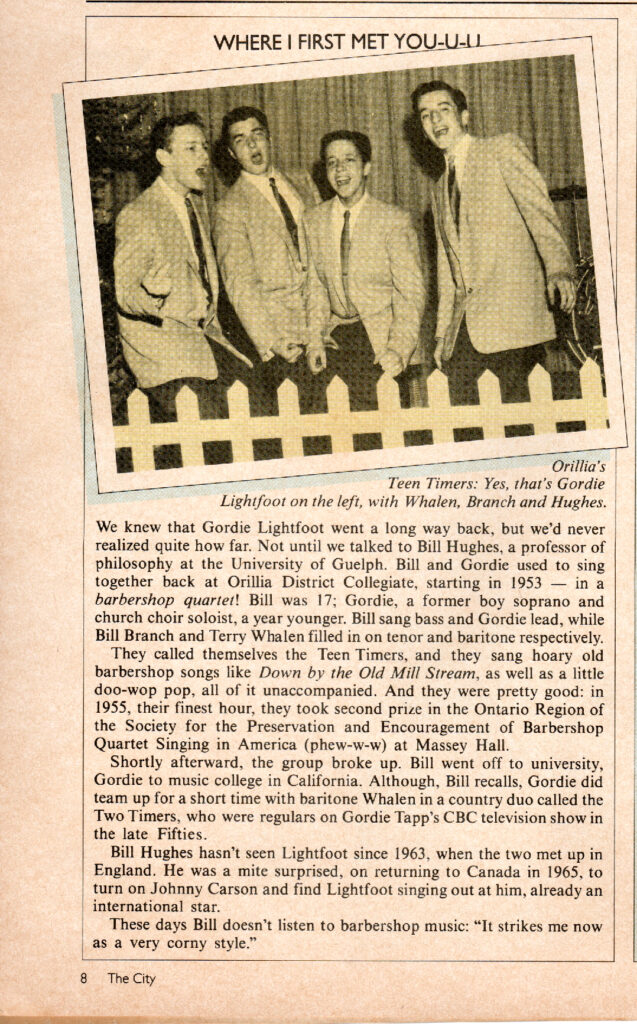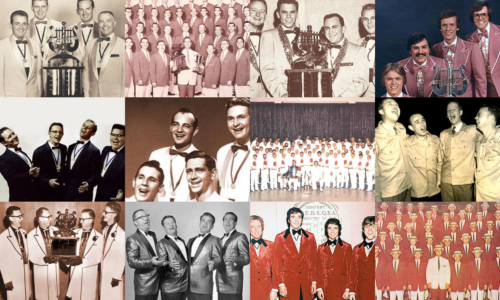
The Dukes of Harmony
are a Canadian men’s chorus
singing in the exquisite
a cappella 4-Part HARMONY style
Join the Dukes of Harmony!
And learn to sing in harmony.
Questions? Push this button:

The Dukes of Harmony, founded in 1954, is a vibrant and passionate a cappella 4-part harmony chorus based in Toronto, Canada.
With a rich history spanning over seven decades, the Dukes have been a cornerstone of the Canadian barbershop community, delighting audiences with our four-part harmony and intricate vocal arrangements.
What began as a small group of singers has evolved into a larger ensemble, known for our exceptional blend, energy, and dedication to preserving the chorus tradition while embracing contemporary influences.
Throughout the years, the Dukes have garnered numerous accolades and recognitions at national and international competitions, showcasing our musical excellence on stages around the world. Our dedication to musicality and performance has not only brought us awards but also a loyal following of fans who admire our artistry and commitment to spreading joy through song.
The chorus prides itself on fostering a sense of camaraderie and community among its members, making it more than just a singing group—it’s a family.
The Dukes of Harmony celebrated our 70th anniversary in 2024 and we continue to honour our past while looking toward the future. Whether performing at local events, collaborating with other choirs, or engaging in outreach initiatives, the Dukes remain committed to sharing the magic of barbershop harmony with new generations.
Our longevity is a testament to the enduring appeal of this art form, as well as the passion and dedication of every member who has walked through our doors. Join us!



Learn to sing in harmony!
No need to read music.
Contact us here to find out more
Your Security is our concern. Every form on this website is protected by Google Recaptcha v3


Harmonize Your Life!





We are an a cappella chorus dedicated to performing in the exquisite 4-part barbershop harmony.
We are devoted to pursuing musical excellence in barbershop singing, but equally importantly, we offer an open and friendly environment for any and all singers.
Join us and keep that harmony ringing!
Our vision is to spread the good word about Barbershop Singing and to perform for our public with ever increasing excellence in, and a commitment to this magnificent and traditional art form.
We are dedicated to supporting our singing community and our general community, all the while pursuing excellence in Barbershop harmony singing.
Good Friendship, Good Harmony, Good Cheer!
Keep the whole world singing,
All day long,
Watch good will come a’winging
On a song,
Smile the while you are singing.
Carry, carry your part,
Keep a melody ringing,
In your heart!

Since 1954, the Dukes of Harmony have worked to ensure that more people have the opportunity to experience the joy of singing. Join us as we work with community leaders, music educators and people of all ages to live better lives through song. We always welcome new singers. If you’d like to visit one of our rehearsals, just as a guest or as a prospective member, we’d love to see you! We rehearse every Monday night at 7:30pm. Click the button below to let us know you’re coming and get all the details. You’ll be warmly welcomed, promise.
We invite you to join a network of tens of thousands of North American and worldwide singers who, not only sing for their own happiness, but who live to share that joy with others, including you!
We’re working in our community to change lives through song. We view anyone who promotes singing, as a friend and co-traveler on our mission – no matter what type of music they want to sing.
Please press the button below and complete the form with any questions and we’ll get right back to you!
Leave your sweetheart speechless
Imagine from out of the blue, four serenaders bearing flowers appear at your sweetheart’s home or workplace, saying: “Suzanne, Raymond has something special he’d like to tell you”… and out pours a sweet, tender love song in gentle close harmony.
Our Quartets are ready to provide a Valentine’s Day, or any other day, gift that will be remembered forever.
By the way, it doesn’t have to be Valentine’s Day, any day’ll do. Birthdays, anniversaries, graduations…you name it, we’ll sing it!